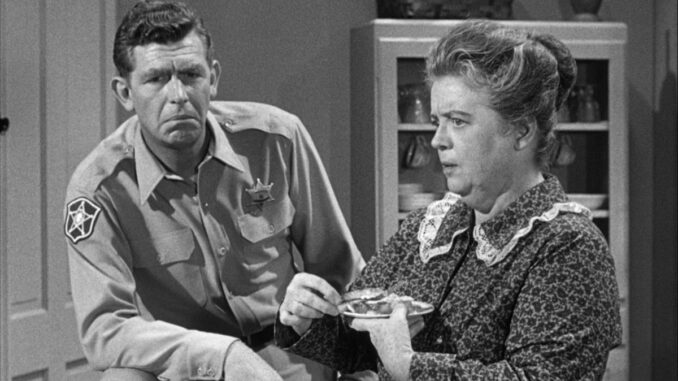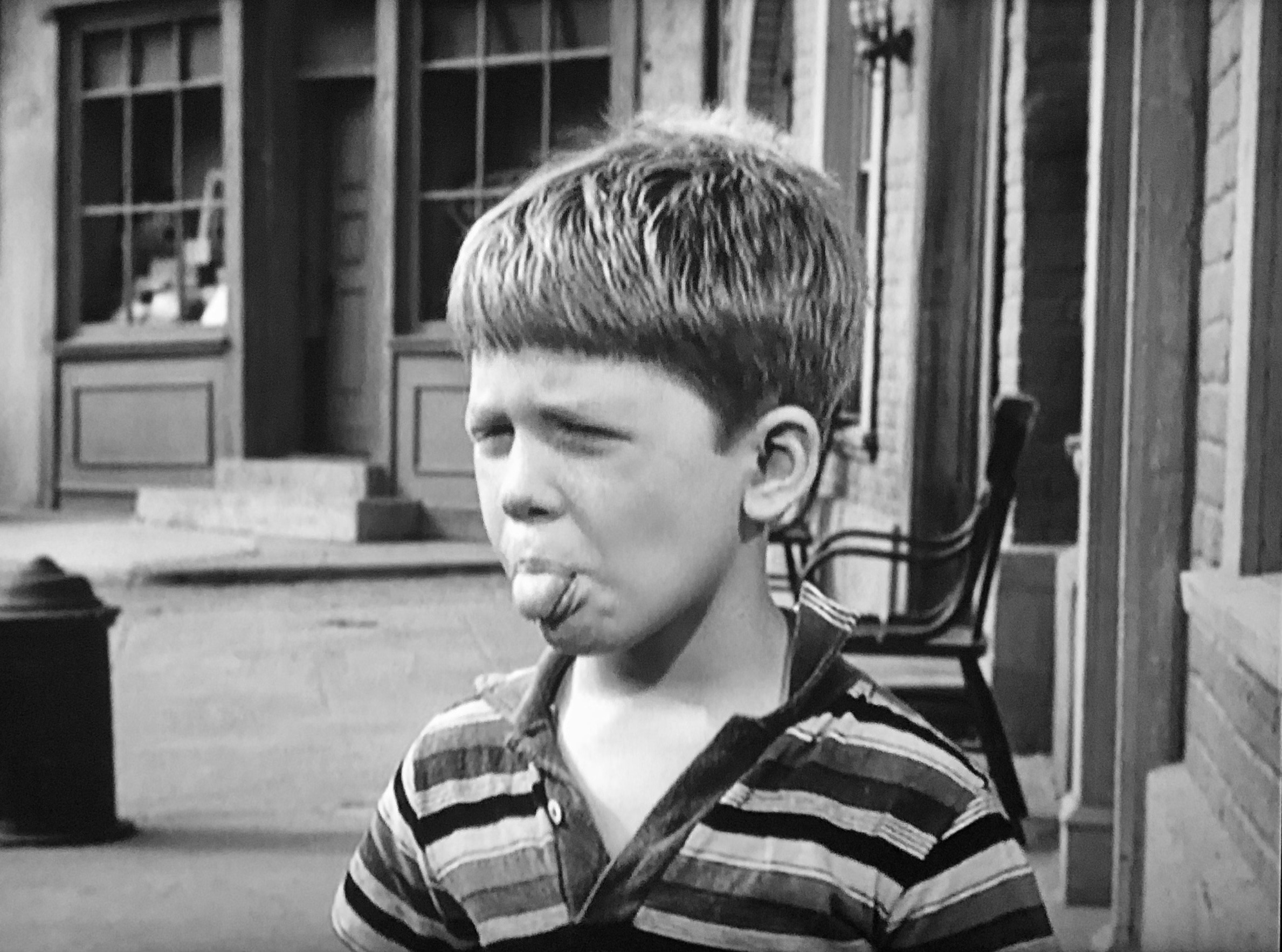
Introduction: More Than Just Mayberry’s Sheriff
When you hear the name Andy Griffith, your mind likely drifts to the sleepy charm of Mayberry, the sweet whistle of the opening theme, and the easygoing sheriff who made small-town life seem timeless. But behind the affable grin and soothing Southern drawl was a man who carried the weight of a childhood riddled with pain, mockery, and deep-rooted insecurity. Andy once said of his youth: “I hate it.”
In this article, we peel back the curtain to explore the difficult upbringing of Andy Griffith—the man who made millions laugh, all while hiding scars from a childhood that tried to break him.
The Man Behind Mayberry Had a Wounded Heart
Andy’s Early Years: Born into Poverty
Andy Samuel Griffith was born in Mount Airy, North Carolina, in 1926. His upbringing was far from glamorous. Raised during the Great Depression, his family struggled to make ends meet. They couldn’t afford a crib when Andy was born—he actually slept in a dresser drawer.
The Shadow of Poverty in Small-Town America
Living in a poor section of town, Andy constantly felt the sting of not having enough. He wore hand-me-downs, and his family was considered an outlier in a community that already didn’t have much. Being poor in a poor town? That’s a recipe for feeling invisible—or worse, ridiculed.
Bullied at School: ‘I Was Laughed At’
Cruelty in the Classroom
Andy didn’t just endure poverty—he was bullied relentlessly throughout his school years. His classmates mocked him for being shy, awkward, and poor. In interviews later in life, Andy revealed the extent of the torment, saying, “I was laughed at a lot.”
The Mockery That Shaped a Performer
Imagine a child so sensitive and so aware of the ridicule around him that he learned to make people laugh as a shield. That was Andy Griffith. The pain became performance. Humor became armor.
Finding Solace in Performance
A Safe Place on Stage
Despite the bullying, Andy discovered early on that performing gave him power. Whether through singing or storytelling, when he had an audience, people weren’t laughing at him—they were laughing with him. That made all the difference.
Church Roots and a Love for Music
Church played a key role in young Andy’s life. It was where he first sang in front of an audience and where he felt a rare sense of belonging. He later said his love for music started in that humble sanctuary, laying the foundation for his future in both acting and music.

College Years: Growing Into His Own
University of North Carolina at Chapel Hill
Andy’s path took a turn for the better when he attended UNC. There, he majored in music and began to gain confidence. He performed in plays and honed his comedic storytelling, finally feeling a sense of identity outside of poverty and bullying.
Breaking Free From the Past
While college didn’t erase his childhood pain, it gave him something new: purpose. Andy began to transform from the mocked boy into a man of presence, charisma, and depth.
The Birth of ‘The Andy Griffith Show’
A Dream Role with Roots in Reality
When Andy created and starred in The Andy Griffith Show, he brought more than just humor—he brought the heart of a boy who longed for peace. Mayberry wasn’t just a fictional town; it was a fantasy world where Andy could finally be safe, respected, and in control.
Creating the Father Figure He Never Had
Andy’s on-screen role as Sheriff Andy Taylor was warm, wise, and dependable—everything he didn’t always experience as a child. It’s no accident that Opie, his son on the show, had a loving, steady father. That was Andy’s ideal vision of what parenting should look like.
Haunted By the Past: Fame Didn’t Erase the Pain
Public Success, Private Struggles
Despite his massive success, Andy never quite outran the ghosts of his childhood. He remained a deeply private, often melancholic man offscreen. Fame gave him security—but not complete peace.
A Complicated Relationship with Fame
Andy was known to be tough on set and could be moody or distant. Some say his demeanor stemmed from childhood wounds that never fully healed. Fame is a loud bandage on a quiet pain.
Andy’s Own Words: ‘I Hate It’
A Blunt Admission of Pain
In a rare moment of vulnerability, Andy once said of his childhood: “I hate it.” Those three words carried the weight of years of isolation, bullying, and longing for something more.
Why That Statement Still Resonates
It’s powerful when someone so universally loved reveals something so raw. It shows us that even the kindest souls have been shaped by struggle—and that healing doesn’t always come easy, even after decades.
Turning Pain Into Art
Channeling Trauma into Comedy
Like many great comedians, Andy used laughter as a coping mechanism. His ability to find humor in the mundane and warmth in the ordinary came from a place of deep emotional intelligence—honed by pain.
The Power of Storytelling
From What It Was, Was Football to his performance in A Face in the Crowd, Andy’s storytelling was always colored by authentic emotion. That’s what made him stand out. That’s why his work endures.
Mayberry: The Town Andy Wished He Grew Up In
Escaping Into Fiction
Mayberry wasn’t just a setting—it was therapy. It was Andy’s answer to the childhood he despised. A place where everyone knew your name, no one judged your past, and life moved at a forgiving pace.
A World Without Cruelty
There were no school bullies in Mayberry. No mocking laughter. Only gentle lessons and kindhearted townsfolk. Andy wasn’t just creating a show—he was rewriting his past in the most loving way he knew how.
Legacy Beyond the Laughs
A Voice That Still Echoes
Andy Griffith’s life reminds us that pain can have purpose. His childhood didn’t define him, but it informed the depth and warmth of the man millions grew to love.
Inspiration for the Bullied and the Broken
Andy’s story is a beacon for anyone who’s ever felt out of place. If a bullied kid from North Carolina can become America’s most beloved sheriff, there’s hope for every misfit still searching for belonging.
Conclusion: Behind Every Smile Is a Story
Andy Griffith may have become a national treasure, but that treasure was forged in fire. His tough childhood gave rise to a gentle genius, a man whose humor and heart masked a lifetime of silent battles. “I hate it,” he once said about his youth—but from that pain grew a body of work that helped heal others.
Behind Sheriff Andy Taylor’s smile was a boy who was laughed at, bullied, and scarred—but who never gave up. And maybe that’s why we never gave up on him.
FAQs
1. What kind of childhood did Andy Griffith have?
Andy Griffith grew up in poverty during the Great Depression. He faced constant bullying and feelings of inferiority, especially due to his family’s financial struggles.
2. Did Andy Griffith talk publicly about his childhood trauma?
Yes. In interviews, he admitted to being laughed at as a child and even stated, “I hate it,” when reflecting on his youth.
3. How did his childhood experiences influence The Andy Griffith Show?
Andy created Mayberry as an idealized version of the childhood he wished he had—safe, friendly, and full of gentle lessons. His role as a loving father figure was a way to model the parenting he longed for.
4. Was Andy Griffith bullied in school?
Yes, Andy was bullied and mocked in school for being poor, awkward, and different. These early experiences left a lasting emotional impact.
5. What message can we learn from Andy Griffith’s life?
Andy’s life teaches us that even deep pain can lead to great art, healing, and purpose. His journey from bullied child to beloved icon is a testament to resilience and transformation.